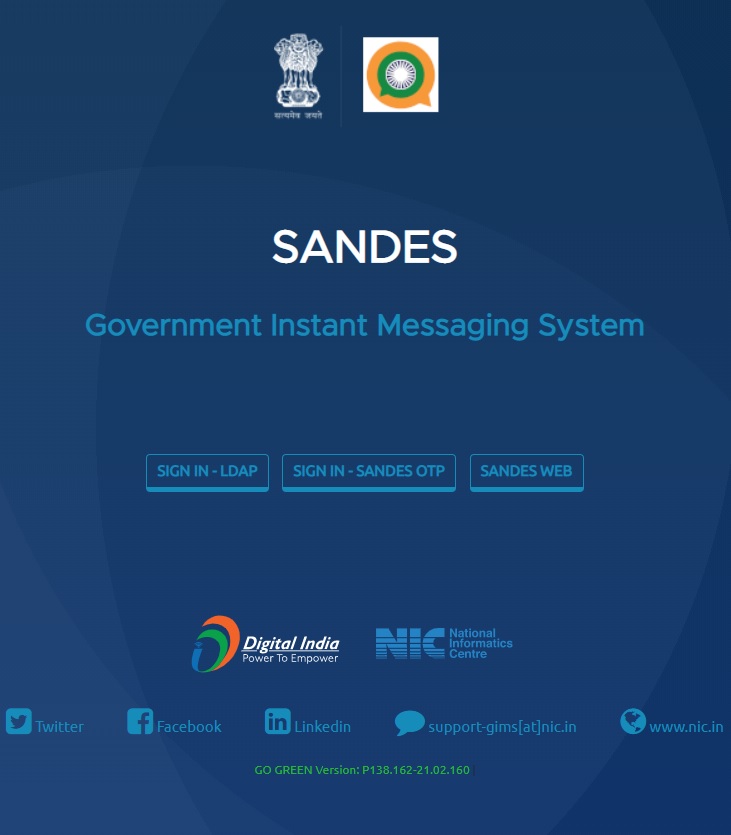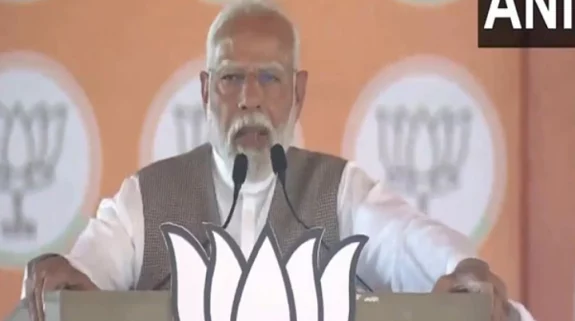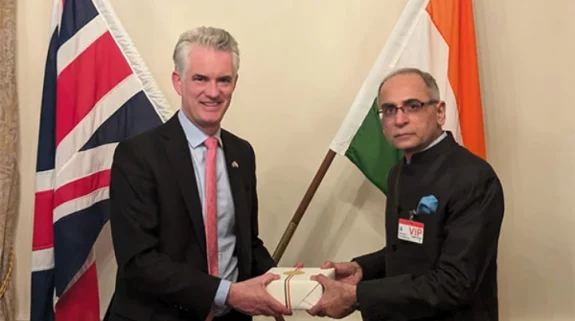Among the spurt of made-in-India messaging and microblogging platforms, Sandes (message), a possible alternative to the ubiquitous WhatsApp from the famed stable of Facebook, is set to become another show-stopper in the virtual world.
The advent of Sandes follows the dramatic entry in the cyber universe of India-made Koo, billed as a possible home-grown alternative to Twitter. Chingari (spark), the Indian challenger to Chinese made TikTok is also making heads turn. All the social-media innovations are part of PM Narendra Modi’s vision of Aatmanirbhar Bharat.
During an address to National Association of Software and Service Companies (NASSCOM) on Wednesday, PM Modi shared his aspiration of making India as global software hub, catering to demands of a connected world. “The government is trying to get the tech Industry out of the shackles with unnecessary regulations. The National Digital Communication Policy was one such big effort, which was formulated to make India a Global Software Product Hub,” the Prime Minister said.
Some of the new digital products are markers of a spirited response to major political developments. Twitter’s reluctance to close Twitter handles that were suspected of fanning violence on January 26—India’s Republic Day—shrouded in the garb of supporting the farmers’ agitation— have triggered New Delhi’s aggressive cyber riposte.
WhatsApp’s controversial changes to its privacy policy, which triggered mass migration to the other messaging platforms such as Telegram and Signal, also hardened the will on Raisina hill to build world class messaging and microblogging alternatives.
Unsurprisingly, the Sandes app, the plan-b to WhatsApp, is already is making rapid progress in its beta phase. During its trial run, the app has been handed over to select government employees.
This app is being christened as the Government Instant Messaging App or GIMS.
The story of Sandes began in August 2020, when the National Informatics Centre (NIC) released the first version of the app, assigning it for exclusive use by central and state government officials “for intra and inter-organisation communication.” The platform was initially launched for Android users, but subsequently the service was also extended to iOS patrons as well.
The backend of the Sandes app will be controlled by NIC, under the Ministry of Electronics and Information Technology. If everything goes well, it can be handed over to the general public.
Government Instant Messaging Systems, GIMS uses a valid mobile number or email id to register the user for the first time. It also offers features such as group making, broadcast message, message forwarding and emojis.
Further, as an additional safety feature, it allows a user to mark a message as confidential, which, the app’s description says, will allow the recipient to be made aware the message should not be shared with others. The confidential tag, however, does not change the way the message is sent from one user to another.
The instant messaging app Sandes has no option to transfer the chat history between two platforms, the chats on Government Instant messaging Systems or GIMS can be backed up to a users’ email.




















